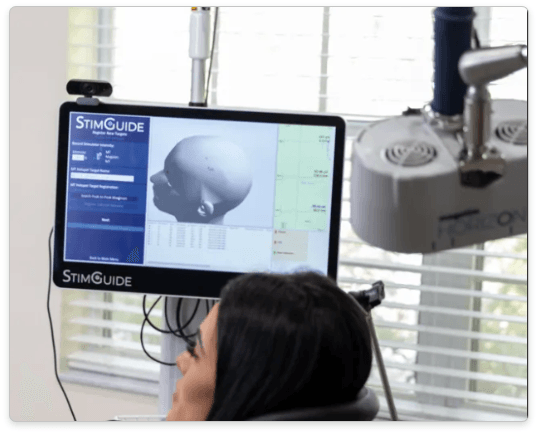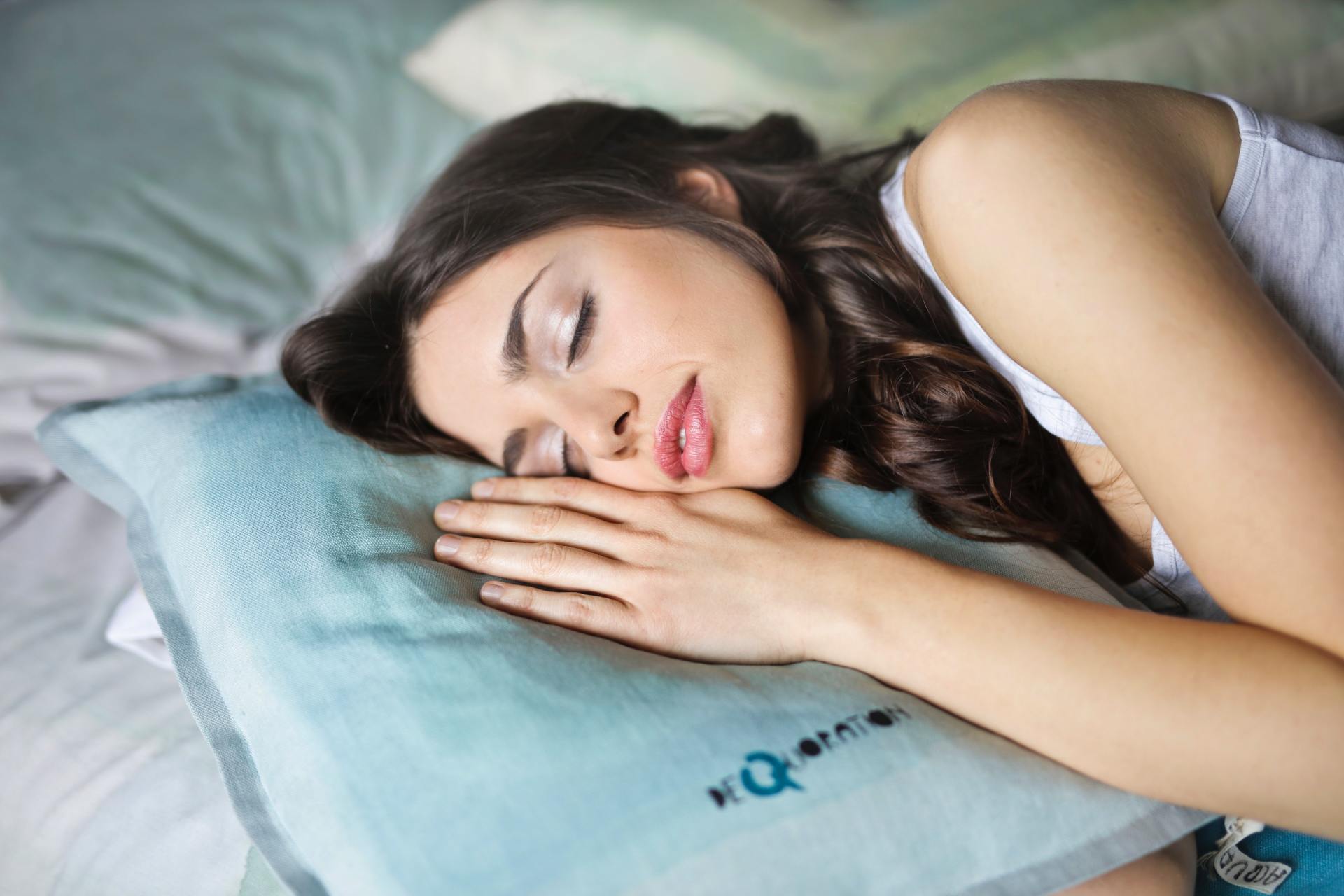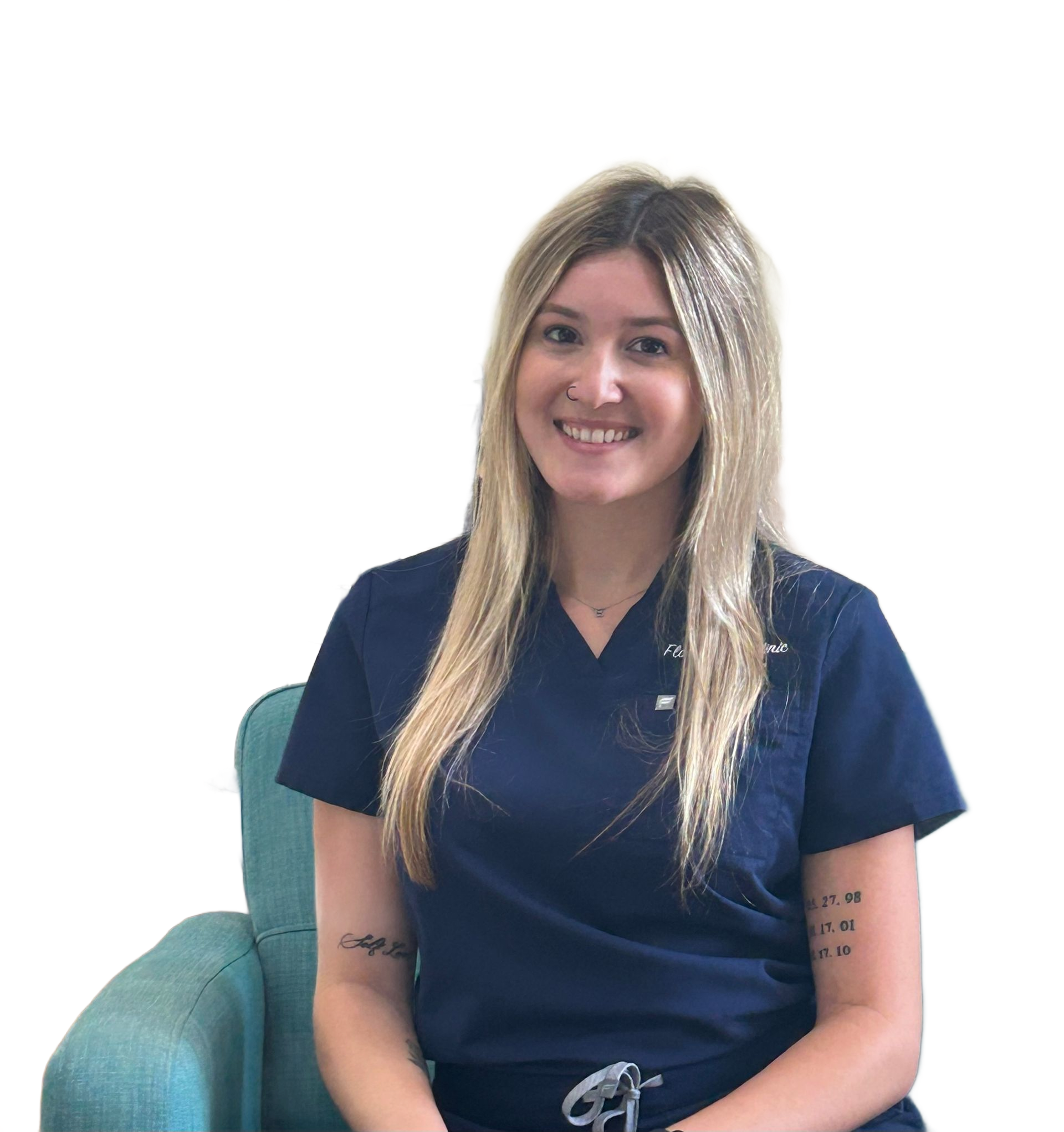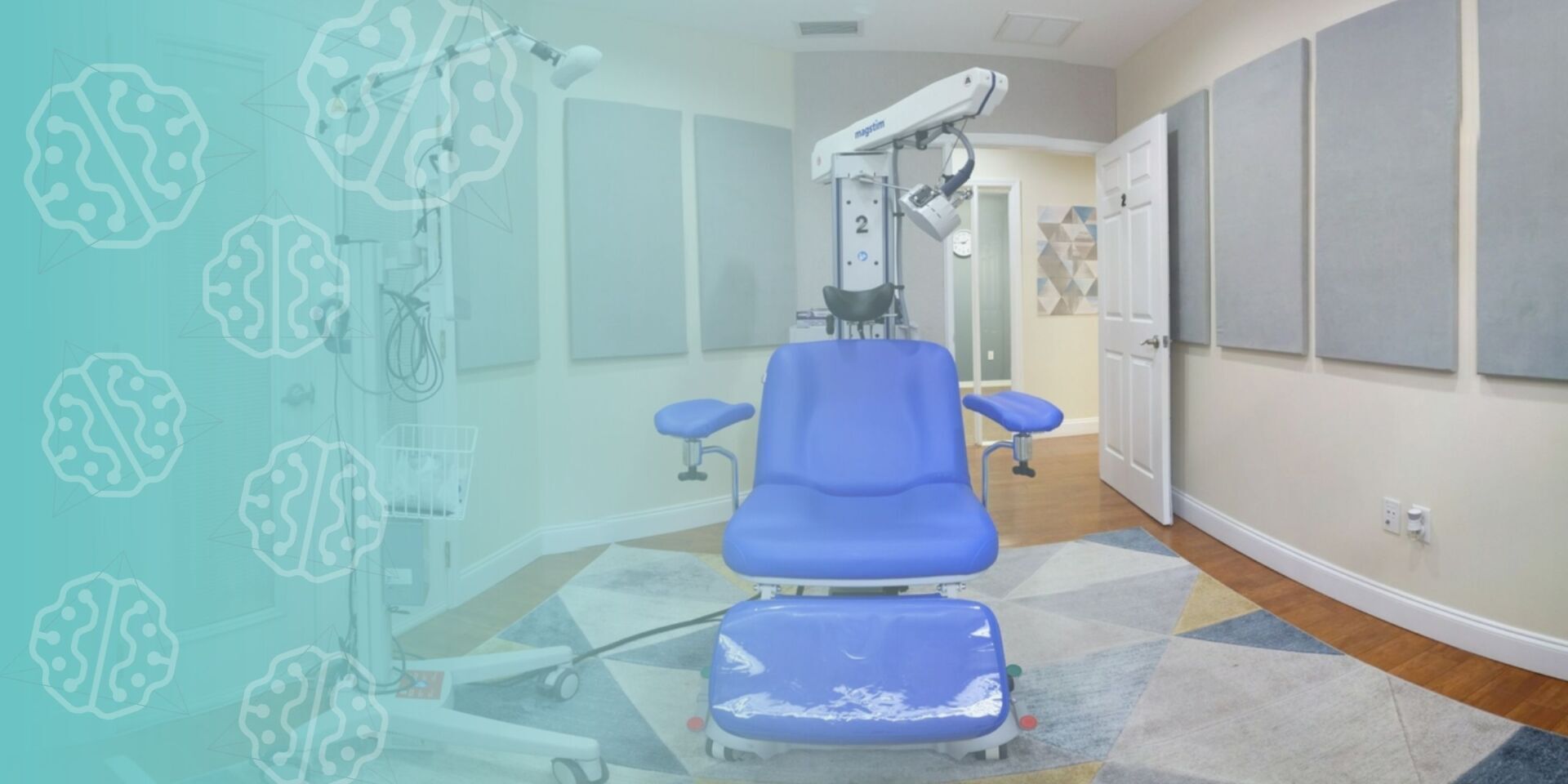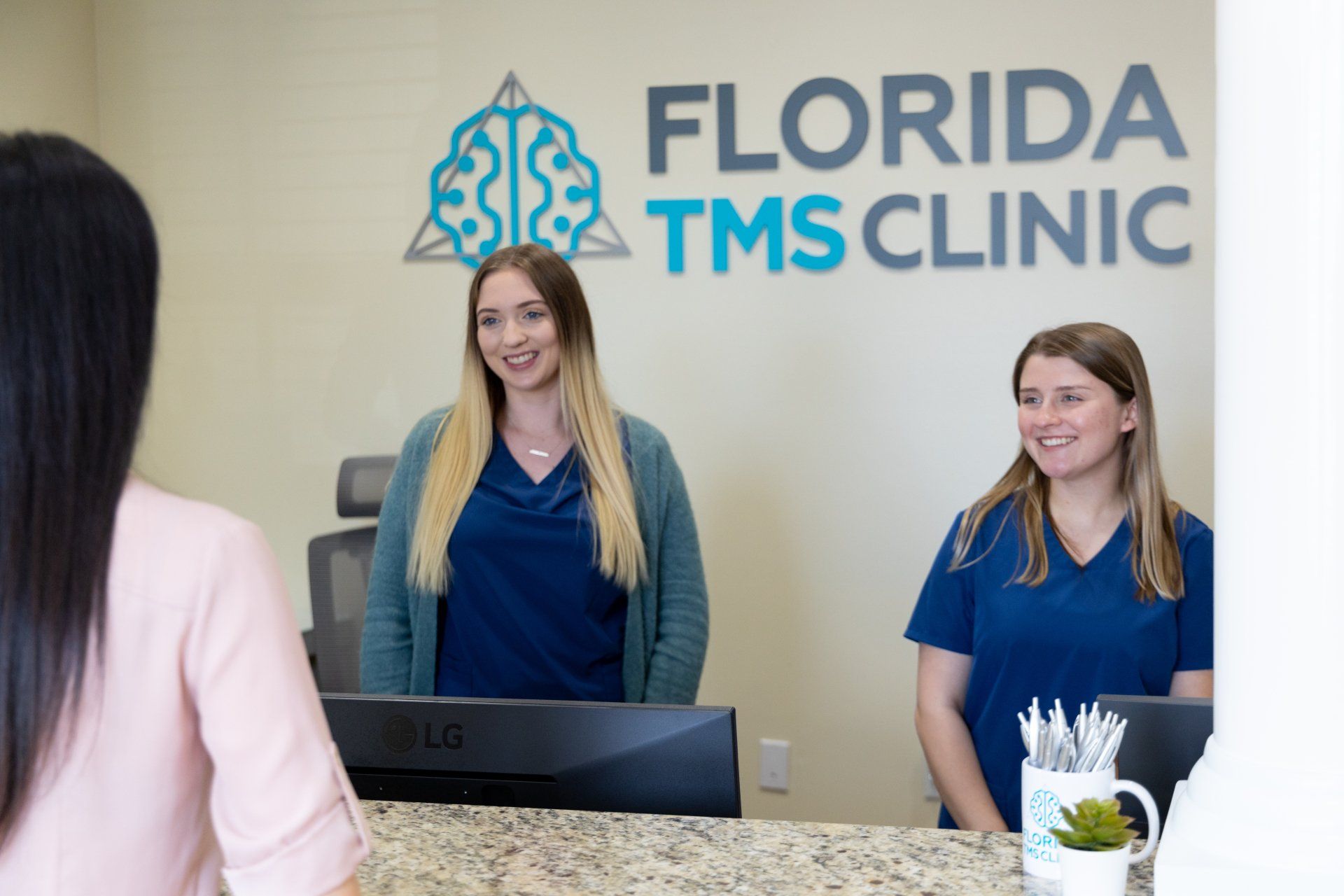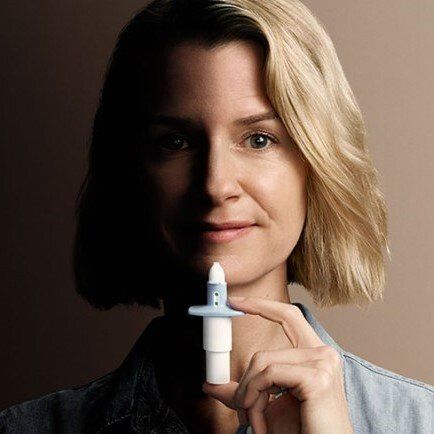TMS Therapy Side Effects
~ 4 Minute Read
By Dr. Khaled Bowarshi
TMS Psychiatrist in Tampa, FL
TMS therapy or Transcranial Magnetic Stimulation offers an alternative treatment option for patients suffering from depression who don’t respond to the classical treatment approach of psychotherapy and antidepressants. Unlike medications, TMS therapy has a much shorter list of side effects. TMS therapy side effects are also less common. Nevertheless, TMS therapy could still carry some risk of side effects.
Many TMS psychiatrists tell patients that TMS is free of side effects! This is not entirely true. To be more specific,
TMS therapy
has meager chances of significant side effects. But that doesn’t make TMS therapy utterly free of any side effects. In this article, you will have access to complete scientific evidence of most of the possible side effects resulting from TMS therapy. Please note that TMS therapy is an FDA-cleared treatment that is prescribed for severe depression. All other treatment options prescribed for severe major depressive episodes do have side effects. This article aims to make you more informed, not to deter you from seeking a badly needed treatment option.
Before we start, let’s distinguish the difference between contraindications and side effects. A contraindication is a pre-existing condition that excludes a patient from being a right candidate for TMS therapy. There are contraindications for TMS therapy, like the presence of ferromagnetic or magnetic sensitive metal objects implanted in the head or neck areas close to the TMS coil magnetic fields (e.g., metal plates, clips, electrodes, chips, pumps, stimulators, cochlear implants). On the other hand, a side effect is an undesired outcome that is caused by TMS therapy. In this article I aim to explain the potential side effects of TMS therapy. I will break it down into common side effects, uncommon side effects and a list of debunked myths of TMS side effects.
Click here to learn more about the pro's & con's of TMS
Common Side Effects Of TMS Therapy
#1 Scalp Discomfort
The most common side effects of TMS during treatment are transient head or scalp discomfort at or around the location where TMS pulses are applied.
#2 Facial Twitching
Sometimes patients may experience twitching or movement of the eyelid or jaw during stimulation due to the excitation of superficial nerve branches and superficial muscle groups’ contraction.
#3 Headache
Headache is sometimes reported after TMS treatment, particularly early in the course of the treatment when there has been no accommodation to the tapping sensation created by the stimulus. TMS headache typically decrease due to habituation or direct local analgesic effect of TMS. For those who may experience moderate headache we may recommend Tylenol or Ibuprofen 30 minutes before the treatment. We sometimes adjust the treatment intensity to avoid such a headache. We rarely see patents experiencing severe headache that requires quitting the treatment.
Uncommon Side Effects Of TMS Therapy
#4 Manic or Hypomanic Symptoms
An uncommon side effect of TMS is the induction of mania or hypomania. As patients are common daily for treatment we closely watch for manic/hypomanic symptoms (e.g., agitation, irritability) as early signs of mania. In such a case, we stop TMS therapy and follow up closely until symptoms resolved and they usually do.
#5 Decreased Hearing
Exposure to loud noise could result in decreased auditory acuity. If ear protection is worn that protects at minimum up to 30 dB, hearing will not be affected by TMS. Thus, ear protection for the patient, TMS device operator, and others in the treatment room during active stimulation is warranted to minimize possible hearing loss. Foam ear-plugs are given to each patient at the beginning of every single session. At Florida TMS Clinic we don’t make an exception to this rule. Every patient wears earplugs during treatment. We have no incidence of any hearing issues.
#6 Syncope
Vasovagal response, particularly in the context of heightened anxiety, hypoglycemia, hyperventilation, or dehydration, can result in syncope during or following TMS. Also the positioning and tilting of the treatment chair could contribute to orthostasis (lightheadedness upon setting up or standing up). The change of position could cause vertigo for those with Benign Paroxysmal Positional Vertigo (BPPV).
#7 Seizure
Inducing a seizure is an extremely rare event during TMS, The risk of tonic-clonic seizure is related to the motor cortex’s direct stimulation or stimulation of adjacent brain areas with the spread of neuronal excitation to the motor cortex. We often watch out the right hand for signs of twitching or movement during stimulation. This helps us ensure that stimulation does not spread from the prefrontal to the primary motor cortex, which can lead to generalized seizure induction with a tonic-clonic movement pattern.
The risk of TMS-induced seizures under ordinary clinical use with the figure-of-eight coil is estimated to be 1 in 30,000 treatments (0.003%). Newer data from real life practices found the risk of seizure is even lower than what was previously reported. It is now believed that the risk of risk of TMS induced seizure is 0.001%, or approximately 1 in 89,000 TMS treatments. A published summary of reported seizures related to TMS found that most TMS-related seizure events occurred in patients with preexisting risk for seizure or when stimulation parameters exceeded recommended safety ranges. Concurrent use of medications that lower the seizure threshold (e.g., imipramine, bupropion, clozapine) may increase the risk of TMS-induced seizure during or after treatment.
Most TMS induced seizures have been relatively brief (usually less than a minute and no longer than 5 minutes), with no associated long-term medical complications.
What's the success rate of TMS? Click here to find out more.
TMS Side Effects Myths Debunked
Again, just like anything in medicine, you will find people spreading unscientific rumors about side effects of TMS therapy not supported by clinical evidence. I picked the top three TMS side effects myths to discuss and present the evidence to fact check them.
#1 Effects On Cognition: TMS Doesn’t Cause Memory Loss
There were no adverse cognition effects of TMS; in fact, studies demonstrated a better performance trend on measures such as delayed story recall. Several additional safety studies have not reported adverse long-term effects or sustained cognitive function changes in subjects receiving TMS. In several studies, performance on standard neuropsychological tests was not adversely affected by TMS sessions; instead, verbal memory tended to improve, and motor reaction times tended to decrease.
#2 Brain Damage: TMS Doesn’t Cause Brain Damage
There is no evidence of pathological change in brain tissue resulting from TMS treatment delivered within the safety ranges. Published data show exposure to “accelerated” dosing (an increased number of total daily pulses) generally appears safe as well. Studies in animals, as well as studies of subsequently resected anterior temporal lobes of humans subjected to direct cortical stimulation or TMS, have failed to demonstrate evidence of histotoxicity (brain damage). The maximal field strength generated by commercially available stimulators is in the 2 Tesla range. The field is induced for a brief period only and the field’s strength falls off rapidly with distance from the coil. There is no evidence of adverse effects from magnetic field exposure during TMS.
Learn about TMS patient reviews
#3 Migraine: TMS May Cause Transient Headache But Not Migraine Headaches
In clinical practice, TMS does not increase migraine headache risk in healthy participants or those with a history of migraine. In fact, the FDA cleared a single-pulse device (eNeura) for the treatment of acute migraine headache.
References:
McClintock SM, Reti IM, Carpenter LL, McDonald WM, Dubin M, Taylor SF, Cook IA, O'Reardon J, Husain MM, Wall C, Krystal AD, Sampson SM, Morales O, Nelson BG, Latoussakis V, George MS, Lisanby SH; National Network of Depression Centers rTMS Task Group; American Psychiatric Association Council on Research Task Force on Novel Biomarkers and Treatments. Consensus Recommendations for the Clinical Application of Repetitive Transcranial Magnetic Stimulation (rTMS) in the Treatment of Depression. J Clin Psychiatry. 2018 Jan/Feb;79(1):16cs10905. doi: 10.4088/JCP.16cs10905. PMID: 28541649; PMCID: PMC5846193.
Perera T, George MS, Grammer G, Janicak PG, Pascual-Leone A, Wirecki TS. The Clinical TMS Society Consensus Review and Treatment Recommendations for TMS Therapy for Major Depressive Disorder. Brain Stimul. 2016 May-Jun;9(3):336-346. doi: 10.1016/j.brs.2016.03.010. Epub 2016 Mar 16. PMID: 27090022; PMCID: PMC5612370.
Rossi S, Antal A, Bestmann S, Bikson M, Brewer C, Brockmöller J, Carpenter LL, Cincotta M, Chen R, Daskalakis JD, Di Lazzaro V, Fox MD, George MS, Gilbert D, Kimiskidis VK, Koch G, Ilmoniemi RJ, Pascal Lefaucheur J, Leocani L, Lisanby SH, Miniussi C, Padberg F, Pascual-Leone A, Paulus W, Peterchev AV, Quartarone A, Rotenberg A, Rothwell J, Rossini PM, Santarnecchi E, Shafi MM, Siebner HR, Ugawa Y, Wassermann EM, Zangen A, Ziemann U, Hallett M; basis of this article began with a Consensus Statement from the IFCN Workshop on "Present, Future of TMS: Safety, Ethical Guidelines", Siena, October 17-20, 2018, updating through April 2020. Safety and recommendations for TMS use in healthy subjects and patient populations, with updates on training, ethical and regulatory issues: Expert Guidelines. Clin Neurophysiol. 2021 Jan;132(1):269-306. doi: 10.1016/j.clinph.2020.10.003. Epub 2020 Oct 24. PMID: 33243615.
Taylor R, Galvez V, Loo C. Transcranial magnetic stimulation (TMS) safety: a practical guide for psychiatrists. Australas Psychiatry. 2018 Apr;26(2):189-192. doi: 10.1177/1039856217748249. Epub 2018 Jan 17. PMID: 29338288.
Stultz DJ, Osburn S, Burns T, Pawlowska-Wajswol S, Walton R. Transcranial Magnetic Stimulation (TMS) Safety with Respect to Seizures: A Literature Review. Neuropsychiatr Dis Treat. 2020 Dec 7;16:2989-3000. doi: 10.2147/NDT.S276635. PMID: 33324060; PMCID: PMC7732158.
Post Marketing Rate of Seizures During Transcranial Magnetic Stimulation (TMS) Treatment with NeuroStar Advanced Therapy Is Lower Than Previously Estimated
Bridget A. McGugan, Karen L. Heart, David G. Brock, Philip G. Janicak
https://www.brainstimjrnl.com/article/S1935-861X(20)30145-5/fulltext
Lan L, Zhang X, Li X, Rong X, Peng Y. The efficacy of transcranial magnetic stimulation on migraine: a meta-analysis of randomized controlled trails. J Headache Pain. 2017 Aug 22;18(1):86. doi: 10.1186/s10194-017-0792-4. PMID: 28831756; PMCID: PMC5567575.
Barker AT, Shields K. Transcranial Magnetic Stimulation: Basic Principles and Clinical Applications in Migraine. Headache. 2017 Mar;57(3):517-524. doi: 10.1111/head.13002. Epub 2016 Dec 28. PMID: 28028801.
